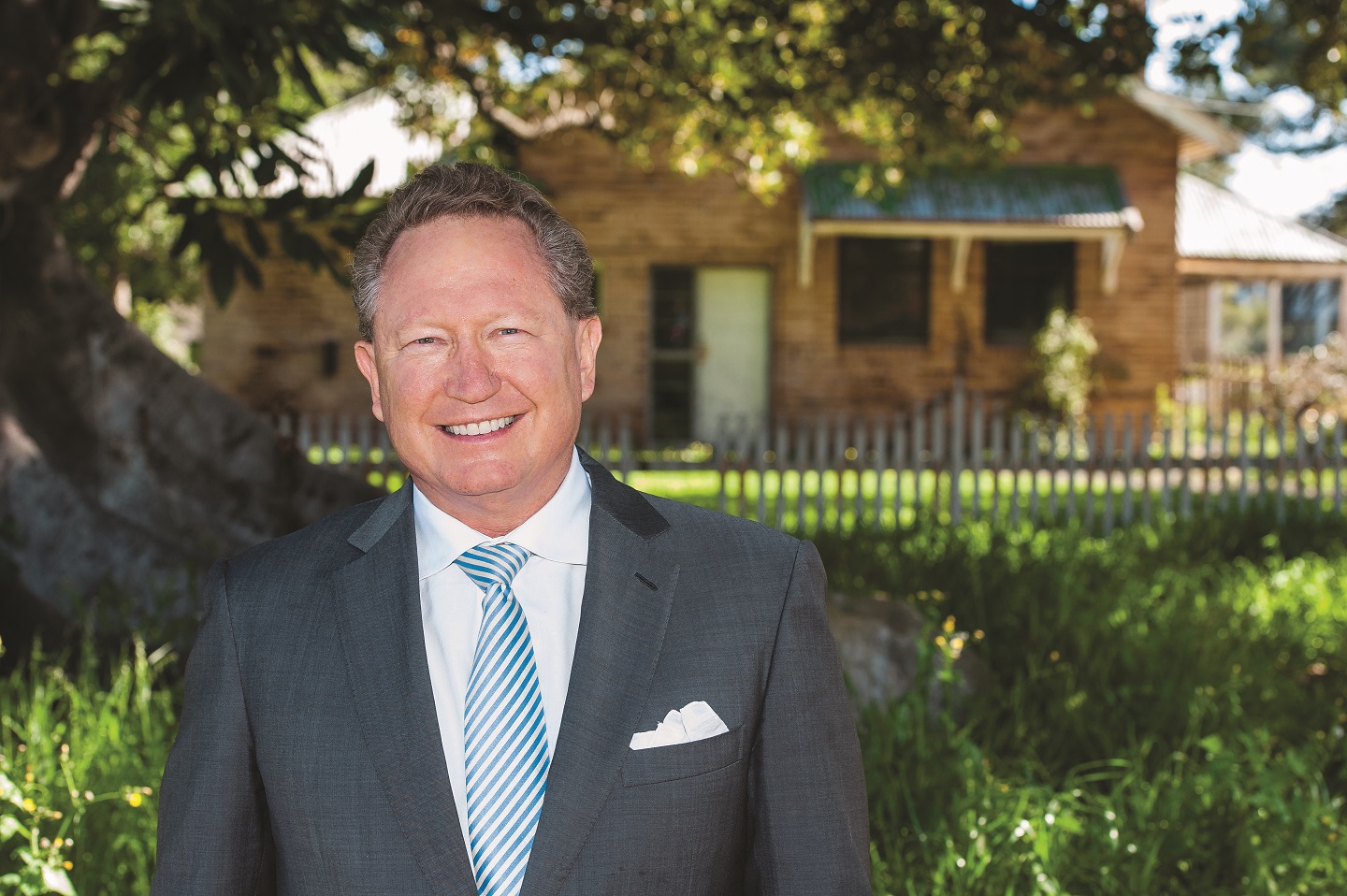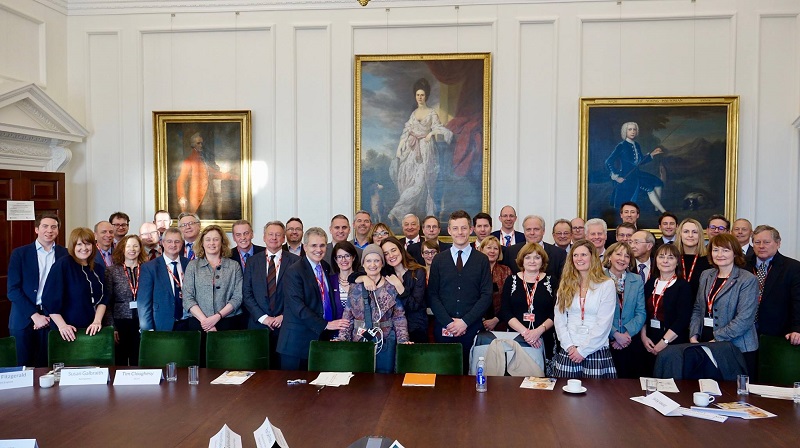
Forrest was at the Opéra de Monte-Carlo to accept the 2018 EY Entrepreneur Of The Year Alumni Social Impact Award (Photo: Minderoo Foundation)
Rarely does anyone get an award from the EY Entrepreneur Of The Year more than once — but then again, rare is a man like Andrew Forrest. The Australian businessman was EY Australia’s Champion of Entrepreneurship in 2011, and this year, he was at the Opéra de Monte-Carlo to accept the 2018 EY Entrepreneur Of The Year Alumni Social Impact Award. The award honours Forrest, who, in addition to achieving outstanding success in business, has made an innovative, significant and lasting societal impact in communities globally.
“I am honoured to receive this recognition and accept it on behalf of all of the causes Minderoo champions,” Forrest said during a ceremony the night before the main event. “Entrepreneurship and philanthropy are incredibly compatible. Both require determination, innovation and a desire to create lasting and positive change. It is important each of us does everything we can to improve our communities — whether it is through giving time, energy or capital. Individually, we can all be change agents and together we can make a lasting difference.”
Perth-born Forrest is globally renowned for founding and building Fortescue Metals Group within one of the most protected and exclusive industries in the world. In just 15 years, he led the company — first as CEO and now as chairman — to become the fourth-largest iron ore miner in the world. The company invested more than US$22 billion in the Australian resources sector and through rapid repayment of corporate debt, Forrest is still the major shareholder.
Forrest and his wife Nicola had, in fact, set the stage for this year’s societal impact award several years ago, as they have always been passionate about philanthropy. In 2001, they set up the Minderoo Foundation, which has supported more than 250 initiatives in Australia and internationally in fields, including ending modern slavery and indigenous disadvantage, eliminating cancer, responding to disasters, advancing cutting-edge research, studying and implementing early childhood development practices in communities, and supporting the environment and the arts.
In 2017, the Forrests donated A$400 million of their personal wealth — the largest donation ever by a living Australian. The significant donation, unveiled in Parliament by Australian Prime Minister Malcolm Turnbull, is consistent with the Forrests’ obligations to The Giving Pledge, under which they promised to give away their personal wealth to philanthropic causes during their lifetime. The Forrests were the first Australian signatories to this global pledge.
In the same year, Forrest and his wife directed A$75 million to the Eliminate Cancer Initiative as planning capital to reward collaboration, accelerate and promote research breakthroughs and improve prevention and detection of cancer and treatment for cancer patients, including access to clinical trials, through the establishment of a global collaboration framework and a core doctrine to ensure the patient is at the centre of every initiative. Also under the Minderoo Foundation, ECI is not a cancer centre, but a convener, enabler, driver of policy change and fundraising vehicle at the service of the patient and the cancer research community, supporting collaborations that break down silos and encourage better outcomes for cancer patients.
“We’ve all lost so many family friends to cancer, and what really bothers me is brain cancer, which is what kills most kids on the planet. The data hasn’t shifted in several years because of a lack of collaboration, and the reason for that is because the potential ‘customers’ — for the lack of a better word — all die quickly. So, big pharmaceutical companies and governments would rather go after things that have a big ray of hope like breast and skin cancers, which now have relatively good survival rates,” Forrest shares.
“In our fight against cancer, we are held back by the lack of clear, coordinated collaboration in the global research industry. Getting institutions that are competing for funding, attention and support is tough, and we want to transfer that sense of competitiveness into where we are now, which is putting the patient first. ECI supports and encourages this collaboration and awards organisations that do collaborate with metrics like data sharing and clinical trials — stuff that will bring cancer to a close, or at a minimum, make it non-fatal.”
“The ECI is poised to make a difference at a time when major advances in cancer knowledge and disruptive technologies have positioned this generation to make a decisive assault on the cancer challenge. Central to ECI’s existence is global collaboration — the initiative will orchestrate an unprecedented and historic collaboration of researchers, oncologists, institutions, decision-makers and patients. It will include, among other programmes, increased focus on cancer prevention and detection, greater patient access to clinical trials and a legal and policy assault on tobacco.

ECI’s key projects are mapping a way forward through the ECI Clinical Trials Network, the GBM AGILE adaptive clinical trial as part of our Global Brain Cancer Mission, our scoping work on the Universal Cancer Databank as well as Centres of Excellence for molecular profiling.
“It took a billion dollars, seven countries and 15 years to map the first human genome and we’ve adapted that model — the governance and ethics behind the Human Genome Project is incredible,” Forrest says passionately. “Now, we’ve mapped the human genome, but we don’t know what switches to push or pull to make the cancer gene stop mutating, or how to activate our immune system to fight the cancer gene when it develops. All those secrets are contained in patient data, and the idea behind the Universal Cancer Databank is to allow patients the world over to contribute their data. Once it’s accessed by researchers around the world and processed by artificial intelligence, that may result in a solution. Because we now have the means to mine a lot of data, but without patients submitting it, we have nothing.”
Likeable and warm, the ruddy-faced Forrest speaks with touching conviction on his Societal Impact award and what he hopes it will do for his cause — most important of which is to raise its profile. And perhaps, to help him hire someone to lead ECI. “I can open doors all over the world, but I need someone young, energetic and enthusiastic to rush through and do the work,” he laughs.
Underpinning everything he does, however, is his belief that ethical business is a major tool to change the world and that each and every entrepreneur has this power in their hands. During his brief session at the EY Entrepreneur Of The Year Forum 2018, he spoke movingly about this calling he has always answered and that businesspeople all over the world should respond to as well. “All of us here can change the world by driving ethical business because it’s the most powerful force for good. Philanthropy can fill gaps, but ethical business can make things whole.”
This article first appeared on Sept 3, 2018 in The Edge Malaysia.


